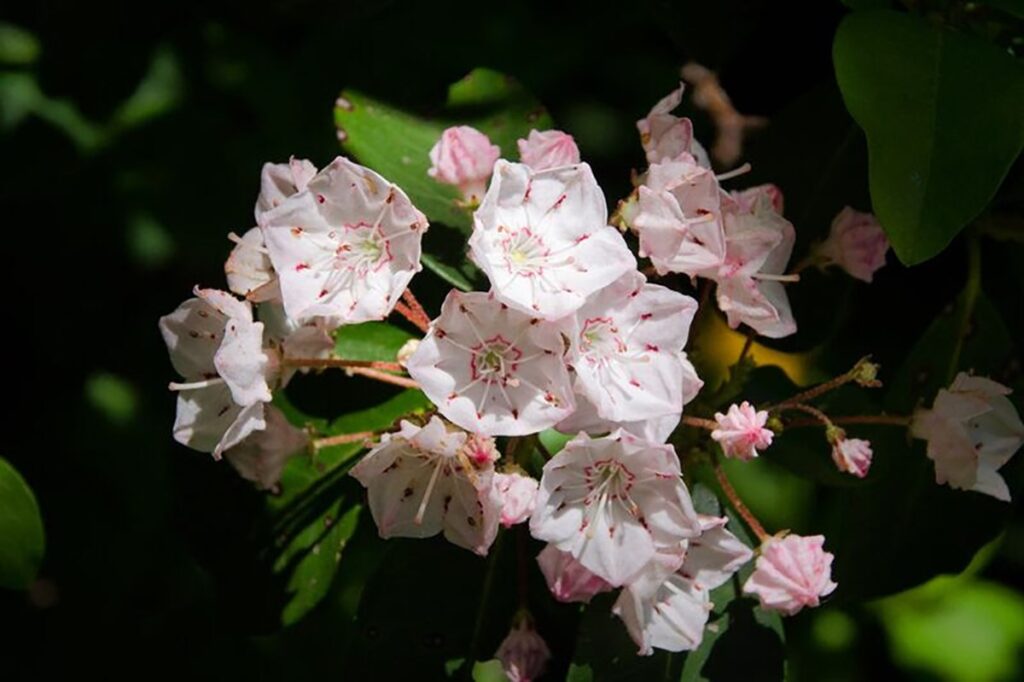
Story originally published in The Sylva Herald April 7 edition.
The Town of Sylva approved changes to its zoning and subdivision ordinances on Feb. 24.
One of the new features of this reworking is that new developments and landscaping changes within city limits will be required to plant native plants, said Paige Dowling, Sylva town manager, in an interview.
Landscaping applicants and developers must submit their development plans to the zoning administrator for approval and requirements on landscaping prior to development.
According to Article 7 of the Zoning and Subdivision Ordinance, these development standards are intended to protect natural life and property value as well as minimize nuisances.
The standards in Article 7 encourage the preservation of existing vegetation and replenishing removed vegetation with native species to improve Sylva’s appearance, minimize nuisances, protect bordering properties from negative development impacts, preserve property value and privacy, and provide environmental benefits.
The environmental benefits include “climate modification, decreased energy consumption, reduced stormwater run-off, decreased erosion, improved water and air quality, and protection of wildlife habitat,” according to Article 7.
Dr. Beverly Collins, an associate professor of biology at Western Carolina University who specializes in botany and plant communities, said native plants are easier to care for since they “are adapted to the growing conditions of the area.” They also help maintain biodiversity by encouraging native pollinators and blocking non-native plants, like kudzu, which could become invasive and snuff out natives.
Collins also elaborated on some of the environmental benefits of planting natives, saying native plants don’t disrupt the ecosystem and they “can buffer movement of sediments into water.”
Adam Bigelow, horticulturist, native plant expert and owner and operator of Bigelow’s Botanical Excursions, is “really excited that Sylva is taking this bold and progressive step … helping to save the world from ecosystem collapse,” he said in a phone interview.
Native plants are important to the ecosystem because many insects, for instance, are adapted to the native plants instead of exotics. Many insects don’t recognize exotic plants as a good nesting place or source of food, which leads to a decrease in insect populations or “insect apocalypse” as Bigelow called it. This “insect apocalypse” causes problems further up the ecosystem’s food web.
“The primary meal of songbirds is the caterpillars found on natives,” Bigelow said. “Fewer insects means less food for birds and other animals that eat insects and so on throughout the food web.”
Bigelow believes that “all invasive plant species are bad for the environment and should be killed and be … replaced with natives,” he said. “Invasive plants should be killed and natural processes should be allowed to take over.”
Exotic or non-native plants are more beneficial than asphalt in terms of water absorption, soil holding, air purifying and pollinators they attract, but natives are ultimately better since they retain the natural aspect of the ecosystem, Bigelow said.
He expressed that a long-term goal to aim for should be “yards and landscapes everywhere, including at your home, being 70 percent native plants, 30 percent exotic plants and no invasive plants,” he said.
Developers are responsible for obtaining the natives according to town leaders, but natives are easy to obtain at many local native nurseries. Some of the places developers can obtain natives include Wildbud Natives, Carolina Native Nursery, Saturnia, Winding Stair, Country Roads, Joe Pye Ecological Consulting and Nursery and the Cullowhee Native Plant Conference, which is held annually in the third week of July.
Joe Pye Ecological Consulting and Nursery grows and sells solely native plants, whereas many other nurseries sell natives, exotics and “nativars.”
Katherine Mathews, professor of botany at WCU, said in an email that nativars are cultivated varieties of natives that tend to have “showier characteristics some people prefer, like the pink-flowering varieties of flowering dogwood (vs. white which is prevalent in nature).”
It is unlikely that developers would struggle to get natives, Sylva Public Works Director Jake Scott said. He added that the Town of Sylva Planning Board may make exceptions, but so far there is little interest in changing the native requirements.


